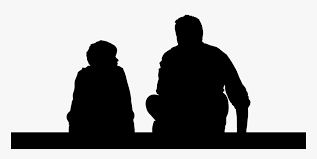
The worldwide COVID pandemic has heightened judgments and negative intrusive thoughts for many of us.
For me, judgmental and negative intrusive thoughts have always been a norm. And it is most often toward myself not others. It is only a matter of how close to mind they are at any one time.
Although I now know that in any given moment, it is the story or narrative I tell myself that forms my life experience, it has certainly not been a fairy tale.
Living with degrees of anxiety and depression for most of my life create a perfect storm for ruminating negative self-talk and catastrophising about the worst possible outcomes.
But what I wish my younger self knew was that it was never worth punishing myself to the point of breakdown to get where I am today.
I know now that self-punishing thoughts are categorically not a passageway to wellbeing.
Patterns that need to be unlearned
For many years, I operated from the mantra of ‘Deb, you are going to fail or Deb, you are stupid” to propel me forward.
The reality is in some ways it perversely worked to my advantage for a long period of time, at least half my life. I am now nearly 48 years old.
I had varying levels of my own negative reinforcement at play to achieve everything from academic prowess, dancing accolades, professional positions, honours and awards and anything I really wanted that took effort. It was my engine so to speak.
The phrases that came up again and again were
“You are not good enough.”
“You are not relevant.“
“You are a fraud.”
But it NEVER served my health and wellbeing. More often than not, I would get sick from nervous exhaustion leading to depression.
I now know that this way of thinking can be a symptom of experiencing mental health challenges, and professional support has made a valuable difference. There are also many useful skills that help ‘unlearn’ habit patterns that don’t serve our wellbeing.
You too may have your own list that rears its unpleasant head from time to time.
As humans, we have an inbuilt negative bias which is purposeful from an evolutionary standpoint to literally keep us alive when danger arises.
However, we are lucky to have a more developed brain that (with some training) can distinguish when we are NOT in life or death danger.
Then, we can realign our thoughts with more useful considerations.
A path forward
During times of distress which include the global pandemic, we can remind ourselves that we are human and inevitably will have some negative intrusive thoughts that come up.
We can acknowledge and accept when they arise and then shift our thoughts to an alternative reality.
Some examples are:
“What if I or someone I care about get COVID?”
Alternative reality- “The majority of people around the world who have had it have recovered from COVID.”
“I’m not good enough.”
Alternative reality- “I am inherently good enough.”
“I am not relevant.”
Alternative reality- “Being born makes me relevant and I have purpose.”
“I’m stupid and a fraud.”
Alternative reality- “Everyone is capable in different ways and I am too.”
“No one cares.”
Alternative reality- “Someone always cares.”
“I will fail.”
Alternative reality- “Everyone fails at something and it is evidence I am having a go.”
So, if negative self-talk creeps up, especially amidst the current global challenges, tell yourself that it is simply a thought. And thoughts come and go.
Replacing with more compassionate thoughts is what we would tell our best friend so why not that friend be ourselves.
I sure wish I realised that years ago when I was growing up. We don’t have to punish ourselves to get where we want to go.
Our wellbeing relies on it.

